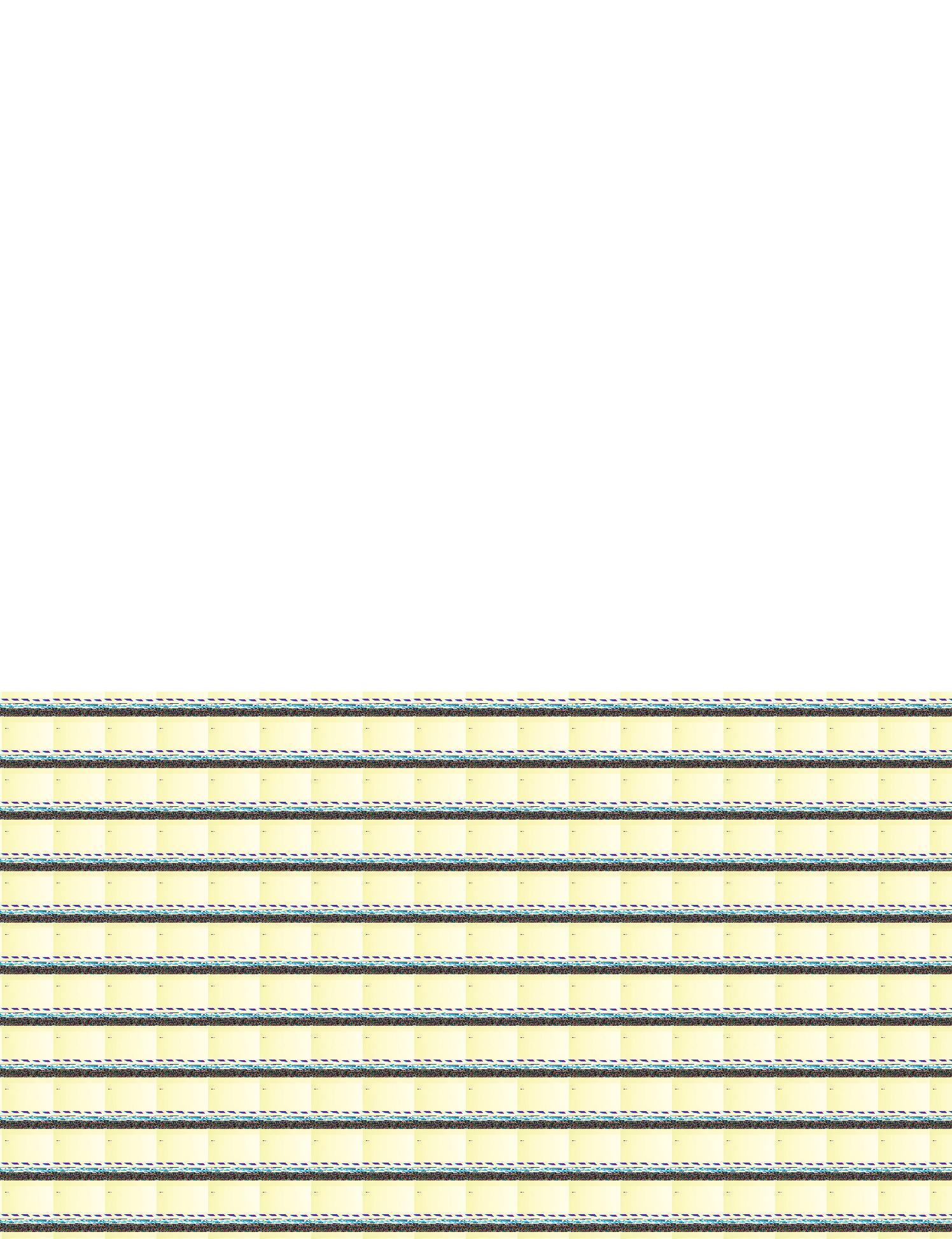













Asweturnthepagetoanewyearbrimmingwithpromiseandinnovation.Insights
Successproudlypresentsaspecialedition, Top Admired Icon to Watch in 2025 that celebratesnotjustachievement,butvision—therarequalitythatelevatesleadersfrom successfultoiconic.Attheheartofthisyear’sissueisafigurewhoexemplifiesthecourageto challengethestatusquoandtheclaritytoleadwithpurpose:AhmedHamada.
Inaneradefinedbyrapidtransformationandcomplexglobalchallenges,Ahmedstandsasa beaconofresilience,intellect,andinfluence.Hisjourneyisnotmerelyastoryofprofessional accomplishment—itisatestamenttointegrity,forwardthinking,andanunwaveringcommitment toimpact.Whetherthroughtrailblazingleadership,boldinnovation,orhisdedicationto communityempowerment,Ahmedcontinuestoredefinewhatitmeanstoleadinthemodernage.
Thiseditiongoesbeyondtheheadlinestoexplorethedepthofhischaracter,therootsofhisdrive, andthelegacyheisshaping.Itisaportraitnotjustofaman,butofamovement—onethat inspiresotherstodreambigger,dobetter,andleadwithauthenticity.
Asyouflipthroughthesepages,mayyoubeasinspiredaswewereincuratingthem.Thefuture isbeingwrittentoday,andAhmedHamadaisoneoftheauthorsworthwatching.
Happy Reading!

-Alaya

Regional Policy Shaper: Meet Ahmed Hamada; The Connector Driving Business Policy Across Africa and the Arab World
The Evolution of Investment Treaties in the Digital Economy Era
The Role of International Investment Policy in Sustainable Development

Art
Business
Business
Digital
Co-designer
Marketing


















Regional Policy Shaper: Meet AHMED

The Connector Driving Business Policy Across Africa and the Arab World

Ahmed Hamada Chairperson, CEO, Senior Vice President, Board Member, and Strategic Policy Maker
AhmedHamadadidn’tsetouttobecomeapublic
figure,burhisimpactmadehimone.Henever chasesattentionuntilattentionfindshim.He startedasanengineer,focusedonsystems,structure,and efficiency.Buthisworkevolvedfromengineeringsystems toempoweringorganizations,andfromoperationsto internationalandregionalpolicy-making,itbecameclearhe hadarareabilitytoconnectstrategywithreal-world change.Today,Ahmedisoneofthekeyfiguresshaping investmentpolicyandinternationalcollaborationacross boththeAfricancontinentandtheArabcountrieswithtwo differentbutinterconnectedmandates.
HeservesastheChairpersonofInternationalBusiness& PartnershipsattheAfricanBusinessCouncil,theVice SecretaryGeneraloftheArabUnionforSustainable DevelopmentandEnvironmentamemberofthe SpecializedArabFederationForumoftheArabLeague, andtheChairpersonoftheInvestment&International CooperationCommittee.Addtothathisadvisoryrolewith thePresidentofUCSA(UnionofConfederationsofAfrican Sports),hispositionasaboardmemberinsovereignwealth entities,andhisexecutiveleadershipasSeniorVice PresidentofamajorGCCinvestmentgroup,andyoubegin tounderstandthescaleofhisinfluence.
Butwhenaskedabouthisleadership,Ahmedkeepsit simple:“Itrytomakethingsbetter.Ifocusonworkthat lasts.”
Ahmed’sprofessionaljourneybeganinEgypt,wherehe earnedaB.Sc.andM.Sc.inEngineeringfromAinShams UniversitybeforecompletinghisMBAattheAmerican UniversityinCairo.HespentyearsworkingintheUnited StatesandEuropeontransformationprojectswith companieslikeVodafone,RollsRoyce,andAmerican Airlines.Thatglobalexposuregavehiminsightintohow complexsystemswork—andhowtoimprovethem.His experiencewithindustriesspanfromdefense,technology, manufacturing,healthcare,aviationandtelecommunication.
HelatertransitionedintoleadershiprolesintheGCCand MiddleEast,asaSeniorVicePresidentinamajor investmentholding,wherealsoheleddefense,technology, healthcare,andeducationcompaniesthroughmajor turnarounds.“Eachroletaughtmesomethingdifferent,”he says.“Someneededstructure,someneededpeople empowermentandinnovation,someneededspeed,butall ofthemneededacleardirectionandpurpose.”
Leadership is about helping others grow strong enough to lead too.
Now,hesupportsonlarge-scalepolicyandinvestment alignment—connectinggovernments,privatesectors,and regionalunionstocreatepartnershipsthatarebothstrategic andsustainable.
OneofAhmed’sdefiningrolesiscreatingsynergybetween AfricaandtheArabworld."Theseregionssharemorethan geography,"heexplains."Theyshareinterests,challenges, andopportunities."
Throughhispolicymakingroles,Ahmedworksto strengtheninvestmentandinternationalrelationsacross AfricanandArabmarkets,fosterpolicydialoguebetween globalstakeholdersandregionalinstitutions,andsupport economicstrategiesthatpromotelong-termdevelopment. Hesays;“AfricaandtheArabworlddon’tneed charity—theyneedclearpoliciesandrealinvestment.”
Healsochampionspracticalframeworksforareaslike sustainabledevelopment,sportsinfrastructure,healthcare investment,andeducationreform—alwaysfocusingon outcomes,notjustpaperwork.
Ahmed’sleadershipstyleisamixofstructuredplanning andflexiblethinking.Helistensclosely,adaptsquickly,and makesdecisionsbasedonabalanceofdataandcommon sense.



Africa and the Arab world don’t need charity—they need clear policies and real investment.


“There’snoperfectdecision.Imakethebestonewithwhat Iknow—andstayreadytoadjustifthingschange.”
Hebelievesleadershipisabouthelpingothersgrowstrong enoughtoleadtoo.”
AttheUNSustainableDevelopmentForumin2025, AhmedrepresentedtheArabUnionforSustainable DevelopmentandEnvironmentwithamessagethatwas directandclear:sustainabilitymustberealistic,inclusive, andregional.
Hearguedforaligningenergyandwater infrastructurewithlocalneeds,pushing formodelsthatbalanceenvironmental goalswitheconomicgrowth.Healso emphasizedtheroleof inclusion—makingsuredevelopment policiesworkforeveryone,notjust theprivileged.Hepointedtothe geopoliticalconflictsandtheirimpacton thedevelopment.
“Wecan’tsolveglobalissueswithdisconnectedpolicies.It takesteamworkacrossborders.”
Ahmed’spassionisrootedinoutcomes.“Successformeis whenanorganizationwesupportedisstillrunningwell yearslater,orwhenapolicyIworkedonturnsintoreal changeinsomeone’slife.”
Heisespeciallyproudofgrowingthevaluationofadigital educationplatformbymultipletimesinoneyearand supportinghealthcaresystemsduringCOVID-19.Buthe rarelyspeaksaboutaccolades.“Quietwinsmattermost,”he says.“Thosearetheonesthatlast.”
Hisadviceissimple:
“Don’tchasetitles.Focusonrealimpact.Becurious,work hard,andalwaysbuildforthelongrun.”









Inthefast-changingglobaleconomyoftoday,thedigital revolutionhastouchedvirtuallyeverysector—foreign investmentincluded.Investmenttreaties,whichhithertowere focusedontheprotectionofmoreconventionalsectorslikeoil,gas, andmanufacturing,arebeingre-engineeredtokeeppacewith realitiesandcomplexitiesofthedigitaleconomy
This transformation promises a paradigm shift in the regulation of foreign direct investment (FDI), the protection of investors, and the management of cross-border flows of data.
Investmenttreatiesareenforceableincharacteramongstateswhose purposeistoencourageandfacilitatetheinvestmentsthatbusiness personsandinvestorsofastatemakeinthehoststate.Traditionally, investmenttreatieshaveincludedprovisionsforfairandequitable treatment,protectionagainstexpropriation,andaccesstofair resolutionofdisputes.Investmenttreatieshavebeenakeyplayerin facilitatinginternationalinvestmentthroughofferinganadditional degreeofsecuritythatbenefitinvestorsinevadingpoliticaland regulatoryrisk.
Nonetheless,withtheemergenceofthedigitaleconomy,poweredby data,e-commerce,cloudcomputing,andartificialintelligence,came newchallengesandopportunitiesthatwerenotexpectedtobe cateredtobyexistingtreaties.
TheDigitalEconomy:RedefiningtheLandscape
Digitaleconomyisbasedonintangiblecapital,real-timeinnovation, andfrictionlesscross-borderdataflows.Digitalbusinesses,in contrasttotraditionalindustries,areabletobuildasubstantialmarket presenceabroadwithoutanyphysicalpresence.ConsiderAmazon, Google,orfintechcompanies—suchcompaniesareglobalbutdon't requirefactoriesorbuildingsanywhereelse.
Thesehavebeenraisingsuchsignificantquestions:Howare investmenttreatiesaddressingdigitalassets?Isdataaninvestment? Whatrightsdodigitalserviceprovidersenjoywheretheyare confrontedwithrestrictivedigitalbordersorshutdownsonthe internetinhoststates?
Investmenttreatiesareinclinedtoremainsilentorimpreciseonall theseconcerns,hencetheneedforinnovationandreform.
Followingtherecognitionoftheseloopholes,moststatesand regionalblocshavesincere-negotiatedorrevisedtheirinvestment treatiestocoverdigitalelements.

Someofthemainmodificationsare:
Newinvestmenttreatiesincreasinglyrecognizeintangible capital—i.e.,intellectualproperty,data,software,and digitalinfrastructure—asinvestableand,therefore,treatyprotected.Thisbroadensthecategoriesofwhoandwhat qualifiesfortreatyprotection.
Data,too,intheInformationAge,isbeingtalkedaboutas the"newoil."Newagreementsarestartingtoprovidefor clausesensuringdatatobemadeavailabletoflowfreely acrossborderswithoutcompromisingtherightproportions betweenprivacy,security,andsovereigntyconcerns.These clauseswillstrivenottonecessitateunreasonablyhighdata localizationrequirementsthatwillprovedetrimentalto overseasdigitalfirms.
Newcontractswillguaranteeequitablepracticein technologytransfer,licensing,andinnovationtoprevent hostcountriesfromtakingadvantageofforeigninvestors bycompellingthemtorevealsecrettechnologyorsource code.
Investmentagreementsarebeinglinkedwithdigitaltrade agreementsforregulatinguniformlyinelectronic transactions,cybersecurity,andconsumerprotection, creatingauniformlegalenvironmentfordigitalinvestors.
DisputeSettlement(ISDS)intheDigital Age
Eventheinvestor-statedisputesettlementprocedure,the mostcommonfeatureofinvestmenttreaties,isnotimmune. Withonlineinvestmentslikelytoinvolvemattersthatare sensitiveinnature,suchasdataprotectionandnational security,hostcountriesaremoreandmoreuneasyabout subjectingtheirregulationtointernationalarbitration.
Therefore,someofthenewtreatiesareheadingtowards moretransparentandequitableISDSsystems.Someeven gosofarastoseekalternativedisputeresolution techniques,e.g.,mediation,fordigitaleconomycases wherespeedofdecisionissovital.
TheTrans-PacificPartnershipComprehensiveand ProgressiveAgreement(CPTPP)andtheUnitedStatesMexico-CanadaAgreement(USMCA)areamongthetrade agreementsthathaveprovisionsonthedigitaleconomyin additiontoinvestmentprotection.Theseareproofsofthe increasingconsensusonhowinvestmenttreatiesneedtobe revisedinrelationtothedigitalage.
Meanwhile,theEuropeanUnionhasbeennegotiatingwith investmentagreementswithanemphasisonsustainable developmentandcorporatesocialresponsibilityinorder thatdigitalinvestorsarealsoheldtoethicaland environmentalresponsibilities.
Thoughthesearepositivemoves,theroadtodigital-age investmenttreatymodernizationisbumpy Thedeveloping worldwillbehesitanttogivetoomuchleewaytoforeign digitalgiants,lesttheylosecontrolovertheirdigital infrastructureandmarkets.Also,internationalconsensuson dataregulationanddigitalrightsremainstobeachieved.
Butwithacceleratingdigitaltransformation,thenecessity forupdatinginvestmenttreatieswillonlyintensify Policymakerswillneedtotreadcarefully:safeguarding foreigninvestorswhileboostingnationalinterestsand supportingbalanceddigitaldevelopment.
Investmenttreatiesarenolongermerelyhigh-priceddeals withpowerplantsandpipelinesintow—theyarealready fastbecominganecessarytoolforestablishingtherulesof thedigitaleconomy Withintangiblesandinformationsetto becomethenewbusinesscurrencyoftheworld,the frameworkoftreatiesneedstochange.Thechallengeisto createtreatiesthatareflexible,future-ready,andequitable toeveryone.
Thedigitaleconomyisnotstandingstill.Ifinvestment treatiesaretobeeffectiveandrelevant,theyhavetokeep upwiththisfastspeedofinnovationthatcharacterizesthis age.Byreformingandincluding,statescanbuildasafer, moreopen,andmoreinclusiveinternationalinvestment environmentforeveryone—afuture-proofglobal investmentworld.








Itisamultifacetedtaskintheglobaleconomyoftoday,
whichdemandsconcertedpolicy,industry,andnationstatestrategy.TheInternationalInvestmentPolicy mightbethemostimportantbutleasttappedassetinthe endeavor.Ifsuitablyfleshedoutandsuccessfullyconveyed, internationalinvestmentpoliciescanbeeffectivetoolsfor sustainableeconomicgrowth,socialdevelopment,and conservation.
Basically,InternationalInvestmentPolicyisguidelines, treaties,andarrangementsthatmakeupforeigndirect investment(FDI)acrossborders.Thepoliciesaretypically developedbygovernmentsandinternationalagenciestothe objectivesofencouragingeconomicrelationsfairbetween homeandhostcountries,safeguardingtherightsof investors,andfurtherencouraginginvestment.Butapart fromthesimplefacilitationofcapitalflows,thescopeof applicationofthesepoliciesiswider—tobeaninstrument ininfluencingthequality,orientation,andsocialand environmentalimpactofinvestment.
Historicalinvestmentpolicyeffortshavefocusedonlyon protectinginvestorsandgainingaccesstomarkets. AlthoughthishasproducedmoreFDIflows,theresults havenotbeensustainableinallcases.Investmenthas,ata grandscale,contributedtoenvironmentaldegradation, workerrightsneglect,andnaturalresourcedepletion. Tryingtoturnthisaround,governmentsandinternational institutionsarereimaginationhowinvestmentframeworks canbeusedforsustainabilitygoals.
NewInternationalInvestmentPoliciesshouldencourage responsibleandethicalinvestment.Forthis,theinvestors needtobeledalongenvironmental,social,andgovernance (ESG)expectations.Forthispurpose,inclusionof sustainabilityprovisionsinbilateralandmultilateral investmentagreementscanbeachieved.Theprovisionscan includeexpectationsonenvironmentalanalysis,labor practices,dealingwithcommunities,andresource management.
Inaddition,hostgovernmentscanemploypolicy instrumentssuchasinvestmentscreeninginstrumentsand performancerequirementstorenderforeigninvestment favorablefortheirdevelopmentobjectives.Forexample,it canmandateforeigninvestorstocreatelocalemployment opportunities,transfertechnology,orinvestinrenewable energy,whichcanstimulatesustainableoutcomes.

Oneofthemosturgentglobalagendasofthepresentdayis theUnitedNations'2030SustainableDevelopmentGoals (SDGs)withgoalssuchaseradicatingpoverty,enhancing healthandeducation,ensuringgenderequality,andfighting climatechange.InternationalInvestmentPolicycanreverse oradvancethesegoalsbasedonwhatitisfashionedand howitisapplied.



AnimaginativelyconceivedInternationalInvestment Policywillnotonlycontrolbutalsomotivate.Governments cangranttaxcredits,subsidies,oradvanceauthorizations forinvestmentthatisconsistentwithsustainable developmentobjectives.Greentechnologyorsocial enterprisespecialeconomiczonesaresimplyideal instancesofthemodelinaction.
Furthermore,sovereignwealthfundsanddevelopment financeinstitutionsarepresentlyinvestingcapitalin investmentswithquantifiablesocialandenvironmental returns.Internationalinvestmentpolicytopromote investmentsinpublic-privatepartnershipsandblended financeproductscanfurthermarshalresourcestoadvance sustainabledevelopment.
Transparencyandaccountabilitymustbeensuredtoensure thatforeigninvestmenthasapositiveimpactonthehost communityandtheenvironment.Investmentagreements andtreatiesmustbecreatedwithproperreporting mechanisms,mechanismsfordisputeresolution,and stakeholderconsultationprovisions.Domesticcivilsociety andrepresentativesfromthecommunitymustbebrought intotheforeigninvestmenteffectsmonitoringand evaluation.
AnopenInternationalInvestmentPolicyensuresthat impactedgroupsnotonlyhearaboutpolicychoices,butare alsocertaintheycanhaveasayindecisionsthatimpact theirlivelihood.Thiswillbuildtrust,reduceconflict,and produceenduringstability—anunwaveringnecessityof sustainabledevelopment.
Thesetransnationalglobalissuesofclimatechange, inequality,andbiodiversitylossrecognizenoborders.To dealwiththem,therefore,isconfrontingthemthrough globalaction.TheInternationalInvestmentPolicymust acknowledgethisfactthroughembracingmultilateralism andcooperation.OrganizationssuchastheUnitedNations ConferenceonTradeandDevelopment(UNCTAD),the OrganisationforEconomicCo-operationandDevelopment (OECD),andtheWorldTradeOrganization(WTO)havea vitalroletoplaytoprovidestandardsandbestpractices.
Bycollaborationovercommoninvestmentprincipleslike sustainability,humanrights,andequitableresolutionof disputes,statescanmaketheworldinvestmentenvironment saferandmorejust.Thisminimizestherisksofinvestingin neweconomiesandencourageslong-termpartnership insteadofshort-termprofit.
ItisoneofthebiggestInternationalInvestmentPolicy disputestoreconcileprotectionoftheinvestorwiththe authorityofthegovernmenttoregulateinthepublic interest.ISDSmechanisms,althoughdesignedtooffera promisethatinvestorswillnotbetreatedunjustly,havetoa certainextentbeeninvokedtoattackgoodpublicpolicy measuresonhealth,safety,andtheenvironment.
Shiftingthesemechanismssothattheyarenotoperatingat theirexpenseandthattheypromotesustainable developmentiscalledfor Thatmeansdevelopingmore precisedefinitionsofinvestment,narrowingthescopeof ISDSprovisions,andplacingconditionsoninvestor conduct.
Withtheworldsetonanopen,sustainablefuture,the InternationalInvestmentPolicycannolongerbe overemphasized.Gonearethosetimeswhenthepolicies onlyneededtoreleasethecapitalflows.Thosepoliciesnow needtobefront-linetoolstodirectinvestmentsthat empowerpeople,protecttheplanet,andbringprosperityin thelongterm.
Forthis,policymakersneedtoembedsustainability principlesinalllevelsofinvestmentmanagement.Thisnot onlywillattractqualityinvestmentbutalsocreatestrong economiesthatareinanexcellentpositiontohandlethe 21st-centurychallenges.Thepathofsustainable developmentislinedwithsmartchoices—andinternational investmentpolicyisoneofthefinesttoolsatourcommand.




















www.x.com/insightssuccess

